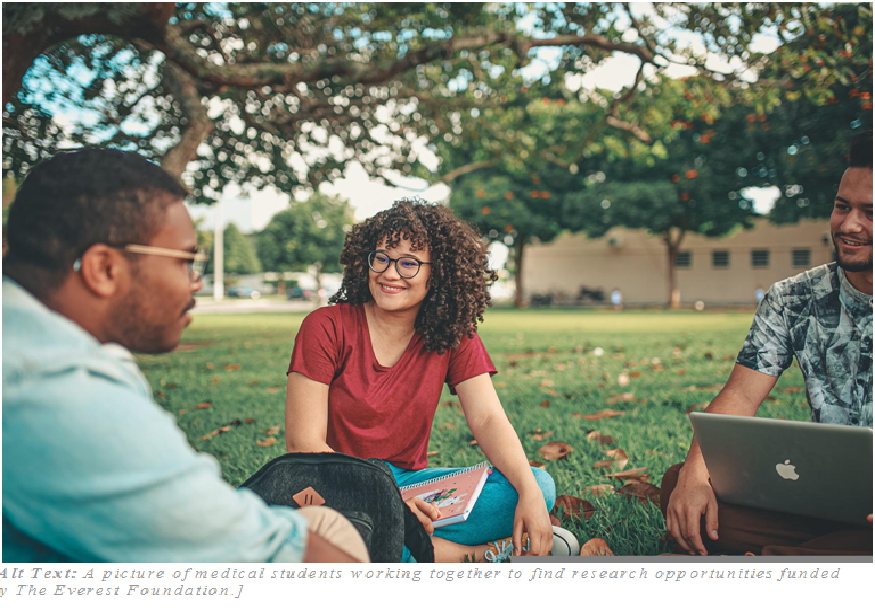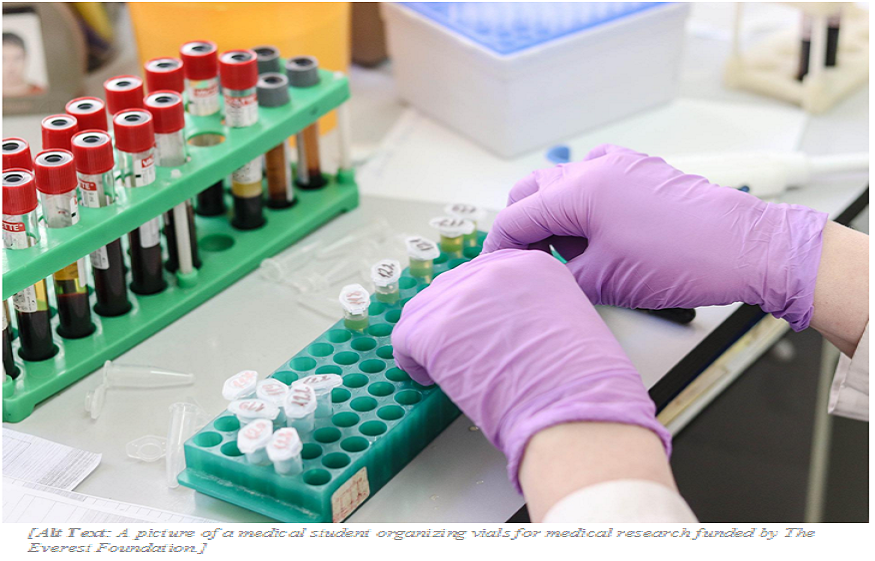Medical research can be a rewarding path. It’s a chance to push the limits, solve problems, work with amazing people, and use advanced technologies. Promising projects may even get support from The Everest Foundation and other institutions.
If interested, dip your toes in small tasks and work your way up to major projects. Just remember to manage your time and prioritize your core curriculum. The Everest Foundation offers a few tips for getting into research as a medical student.
Tips for Getting Involved in Medical Research as a Student
Know Yourself Well
Before proceeding, you must be clear about why you want to get involved in medical research. A vital purpose will keep you going when things get complicated or difficult.
Do you want experience, skill, or mentorship? You should also identify research topics that you find interesting. Genuine curiosity will motivate you to find answers and drive a passion in that particular research branch.
Learn about different types of research to identify the best match for your strengths. You may conduct primary research that requires data gathering or secondary research that uses existing data. You can also perform audits or quality improvement projects.
Create Opportunities
Opportunities won’t always fall on your lap. Not all medical students get invited to be part of a research project. Sometimes you need to open doors for yourself and see where these can take you.
If you have a favorite teacher, mentor, or researcher, approach them and ask what openings they have in their lab and research work. Do the same thing after your rounds at a hospital; this can be one of the best ways to find research opportunities.
Build a Network
While achieving competence in your field is essential, remember that academic knowledge is not the only ingredient of success. You also need to meet the right people and, build your professional network—Foster good relations with your classmates and seniors.
Tell them about your interests so that they can alert you if they come across helpful information. Make friends at conferences and other gatherings. Learn as much as you can from your peers.
It’s also important to network with foundations and institutions that can help fund medical research, like The Everest Foundation. These non-profits are eager to help advance medical research, and getting to know these foundations and their missions can help expand your network.
Agata Everest and the whole team at The Everest Foundation are always looking for medical researchers to partner with and advance modern medicine.
Harness Social Platforms
Social media isn’t just for random thoughts, pretty pictures, and viral videos. Many academics use it to educate the public, promote upcoming events, and share research opportunities.
These are free to use and crowded with people. Their posts have a good chance of reaching the target audience. Keep an eye on these while you scroll. You may also conduct occasional searches on these platforms using relevant hashtags and keywords.
Join Medical Organizations
Major research projects require significant funding and planning. They need a lot of staffing, so they often announce research opportunities for those who want to help. It must be people with knowledge and experience in the medical field. Create an account at related sites and sign up for newsletters.
If you can’t find a medical organization to get involved with, try volunteering for non-profits like The Everest Foundation. Finding ways to get involved and gain experience in any part of the medical field will help you get one step closer to joining a research team.
Find Collaborative Groups

Sometimes groups of professionals work together to pursue a common goal, and academics collaborate on their research. The members may come from different sectors of the medical field, with each contributing their unique expertise. See whether you can join the groups working on your preferred topics.
Help in Projects
Some medical school activities will provide opportunities to learn about research methodologies. These may also require students to perform academic writing with strict standards and formats.
Instructors might ask the class for volunteers for research projects. If you take the opportunity to volunteer, you won’t be able to pick the topic, but you will gain invaluable experience if you answer the call. You can apply the lessons later when it’s time to initiate your project.
Conduct Peer Reviews
You can also approach research from a different angle, such as becoming familiar with academic publishing. For example, academic journals may need more peer reviewers to assess the contents of submitted papers.
If you don’t have prior experience, the journal will train you on how to do the work. They may also provide a reference. You will learn what it takes to get favorable reviews, which will surely come in handy in the future.
Become a Journal Staff
You can even apply to become part of the regular journal staff. Apply for the marketing, finance, or other departments. Reviews are just a tiny part of the process, after all. If you become part of the committee overseeing the publication, you will gain a deeper insight into how medical journals operate. You will get a front seat while the board selects articles for publishing and also learn about the hottest topics in medicine.
Fix Immediate Problems
If you think about it, nearly every experience you will get in medical school can be harnessed for research. You don’t always have to tackle advanced topics. For example, you can study the issues plaguing medical education by using your peers as the sample population.
You could run for the student council or form an organization that aims to improve student life. Present your findings to the administration and suggest viable solutions.
Armed with relevant skills and experience, you are more likely to make your dreams come true. Apply for financial support from educational and non-profit institutions that focus on medical research.
One is The Everest Foundation, which Agata Everest and Dr. Michael Everest run. Their family is committed to funding innovative research projects and opening more residency training slots.
Their goal is to help medical students pursue their graduate education while uplifting the lives of underserved communities. If your project aligns with their vision, it’s a good match. Discuss available opportunities today and learn more about the efforts of Agata Everest and The Everest Foundation on their website and through their social media channels.



